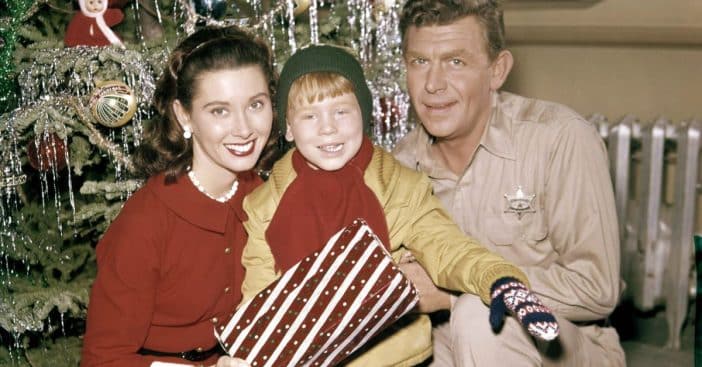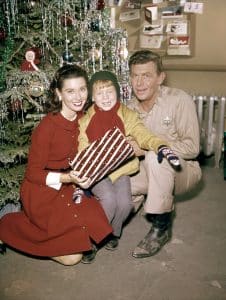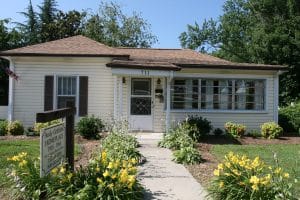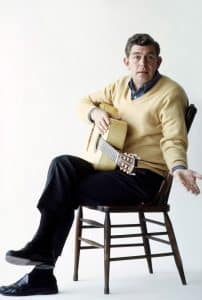
For almost a decade, Andy Griffith watched over the place everyone wanted to be, Mayberry, where the days were full of smiles and wholesome values. When the cameras weren’t rolling, Griffith, who played Sheriff Andy Taylor in the CBS sitcom, upheld this positivity by growing Christmas trees for Boy Scouts and their families to pick out each winter.
Griffith maintained a home in California for many of his working years but he was a proud native of North Carolina from his birth in 1926 until his death in 2012. He was born in Mount Airy and eventually planted deep roots in Roanoke Island. Not only did these locations serve as inspiration for beloved Mayberry, they were also where Griffith found ways to serve his local community.
Andy Griffith grew Christmas trees for the local Boy Scouts to take home

Between filming The Andy Griffith Show and numerous guest appearances on other programs, Griffith liked to spend his free time at his Manteo, North Carolina home. The beachfront property was sprawling, offering plenty of land rife with potential.
RELATED: Andy Griffith Had To Prove Himself As An Actor All Over Again Following ‘The Andy Griffith Show’
For how nationally famous he was, Griffith actually preferred his free time well out of the limelight, keeping mostly to himself and enjoying quiet time fishing or hunting. But his other hobby allowed him to connect with his community in a meaningful way. On his scenic property Griffith grew Christmas trees. When the holidays rolled in, he would invite the local Boy Scouts to come pick out a tree for their home.
Sometimes, Griffith was asked why he maintained such a tradition – especially because growing all those trees usually blocked his view of the beach. Such a detail wasn’t even on his mind when he explained, “Every good boy deserves a gorgeous tree.”
Andy Griffith loved his community and his work

Griffith dedicated 53 acres of his property to his venture – and he did not sell them but rather gave them away for free. It was never trouble for him; Griffith, when discussing his career and his good deeds for his hometown, was loyal and committed to both.
There was a time when Griffith showed promise as a school teacher; when asked if he regretted not following that quieter path that wouldn’t compromise his privacy, he said, “I’d hate it. I don’t know what I would’ve done without show business. There’s nothing like it. To be chosen to play a part is one of the greatest joys in the world.”

Griffith still found ways to stay deeply connected with the areas of North Carolina he called home and his neighbors called him “a chronic practical joker” who “made people laugh and country-boy charmed them, onscreen and on the island.”

